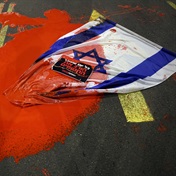
The Jacob Zuma corruption trial will soon recommence in the KwaZulu-Natal High Court with his new legal team bringing three arguments in favour of a permanent stay of prosecution. It seems doubtful that they will succeed, writes Serjeant at the Bar.
The saga relating to the prosecution of Jacob Zuma is moving into a new but certainly not the last phase. An application for a permanent stay of prosecution of Mr Zuma will soon be heard in the KwaZulu-Natal High Court but again not without the negotiation of further procedural hurdles constructed by Mr Zuma's new legal team.
Before we get to this latest issue, it is important to remind ourselves that, were the application to succeed, Mr Zuma would finally be off the legal hook insofar as this set of criminal charges against him are concerned.
His lawyers have argued that there are three key legs to the case in favour of a permanent stay of prosecution: 1) the long delays in getting the case to trial, bearing in mind that more than a decade has elapsed since the case against him was initiated; 2) a political conspiracy lies at the heart of the NPA's determination to prosecute Mr Zuma and; 3) pretrial irregularities including unlawful spying on Mr Zuma as was evidenced in the leaked Brown Moles report back in 2006.
The central argument about unnecessary delays will be a difficult one. In the case of Saunderson, the Constitutional Court in 1997 had the following to say about the relevant legal position: "The courts will apply their experience of how the lapse of time generally affects the liberty, security and trial-related interests that concern us. Of the three forms of prejudice, the trial-related variety is possibly hardest to establish, and here as in the case of other forms of prejudice, trial courts will have to draw sensible inferences from the evidence. By and large, it seems a fair although tentative generalisation that the lapse of time heightens the various kinds of prejudice that s 25(3)(a)(of the Constitution which guarantees a fair trial) seeks to diminish."
In the Zuma case, while considerable delays have taken place, these have hardly affected the liberty of a man who ruled as president for almost a decade after the initial moves were made to charge him. In addition, most of the delays were caused by what became known as the Zuma legal team's use of the Stalingrad tactic: the exploitation of every conceivable legal loophole to ensure that Mr Zuma never stood trial. According to an answer to a parliamentary question it appears that Mr Zuma's legal costs amounted to R16 788 781 although some of this was expended on the Nklandla litigation.
That not only amounts to a serious attempt at a policy of redistribution to the legal profession but is also indicative of the intensity of the legal battles waged by Mr Zuma to fend off the criminal charges. The question thus will be asked: can an applicant for a stay succeed if he (as in this case) is the essential cause of the delay? And as Justice Johann Kriegler reminds us in Saunderson, "Since time immemorial it has been an established principle that the public interest is served by bringing litigation to finality."
It is surely obvious that serious criminal charges against a person who held, until recently, the highest office in the country should be fully considered by a court. And this is a further difficulty that will doubtless have to be overcome if Mr Zuma's application is to succeed.
The argument about a conspiracy might have found favour with Judge Christopher Nicolson but, not only was his judgment overturned on appeal but there is now a line of case law which has considered this argument and found that it does not present a bar to a prosecution.
The contested nature of the application for a permanent stay has recently given rise to further controversy. In the first place it appears that Mr Zuma's lawyers object to the judge president of the KwaZulu-Natal High Court setting the application down before three judges and further there seems to be some anxiety in the Zuma legal team's ranks about the absence of Deputy Judge President Mjabuliseni Madondo from the panel, alternatively that he should sit as a single judge to hear the application as a precursor to possibly presiding at the criminal trial.
The response to the first argument is that it is difficult to see the basis for an argument that a full bench should not determine this critical question. The application involves, as indicated in this column, complex issues of law and fact and further the applicant is a former president of this country. The implications are important and are clearly in the public interest; hence composing a full bench is a prudent course.
A more troubling development is the Zuma legal team's focus on the absence of the deputy judge president from the panel of judges who will hear the application. By this conduct the implication is that Mr Zuma considers that the presence of the deputy judge president as the adjudicator would be favourable to him. If this is what is intended then it is most unfair on a senior judge as it is on the three judges appointed to hear the matter. It raises the question concerning the extent to which the Stalingrad tactics are employed in a matter which demands finality.
- Serjeant at the Bar is a senior legal practitioner with a special interest in constitutional law.
Disclaimer: News24 encourages freedom of speech and the expression of diverse views. The views of columnists published on News24 are therefore their own and do not necessarily represent the views of News24.




 Publications
Publications
 Partners
Partners























